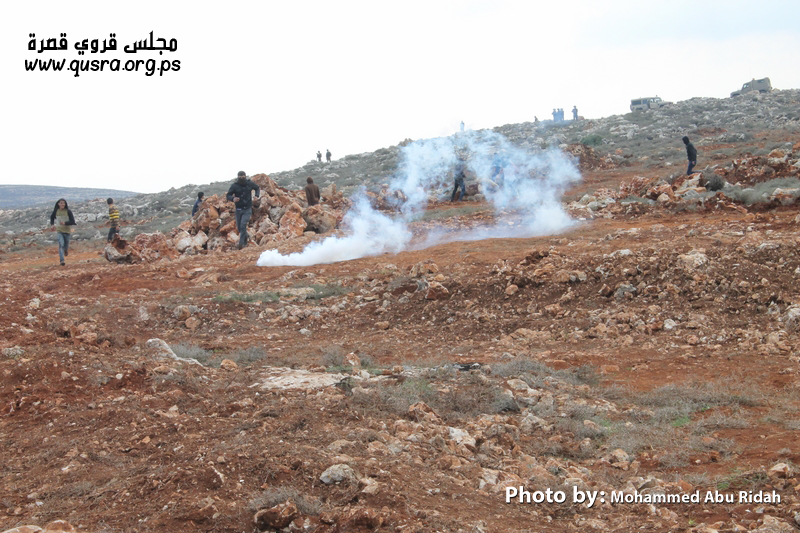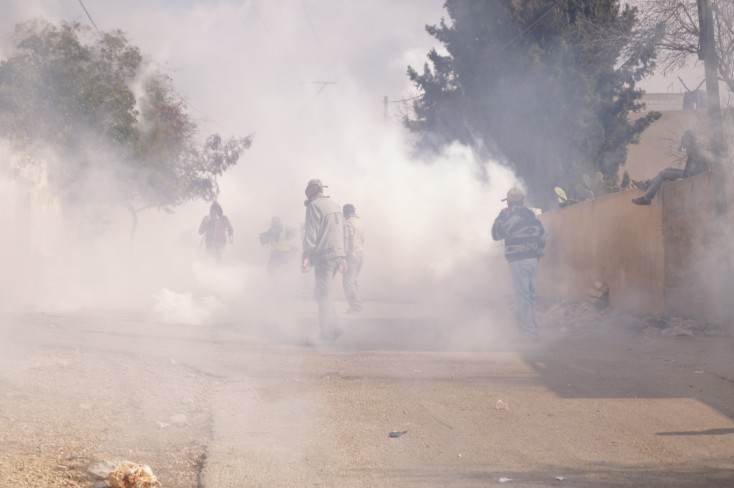Tag: Rubber-coated steel bullets
-
Military repression following a settler attack in Qusra
7th January 2014 | International Solidarity Movement, Nablus Team | Qusra, Nablus District, Occupied Palestine On the 7th of January in Qusra, two farmers working on their land were threatened by settlers carrying guns. Villagers helped them to chase the invaders away before being violently repressed by the army. On Friday, at 10:30 a.m., two…
-
Two people were injured and dozens more suffered from tear gas inhalation at weekly demonstration in Bil’in
24th January 2014 | FFJ Media Center | Bil’in, Occupied Palestine Two people were injured and dozens of other civilians, including international solidarity supporters, suffered from tear gas inhalation during Bil’in’s weekly protest against the wall and settlements. This week, the demonstrators also marched in protest of the continued siege and starvation of the Yarmouk…
-
Weekly protest at Kafr Qaddum met with exceptional violence
24th January 2014 | International Solidarity Movement, Nablus Team | Kafr Qaddum, Occupied Palestine On Friday 24th January, 2014, the weekly demonstration in Kafr Qaddum, in the Qalqilya district, was repressed by excessive force, to a much greater extent than on most Fridays. By 11:00 a.m., clashes had already broken out between local youths and Israeli soldiers…



